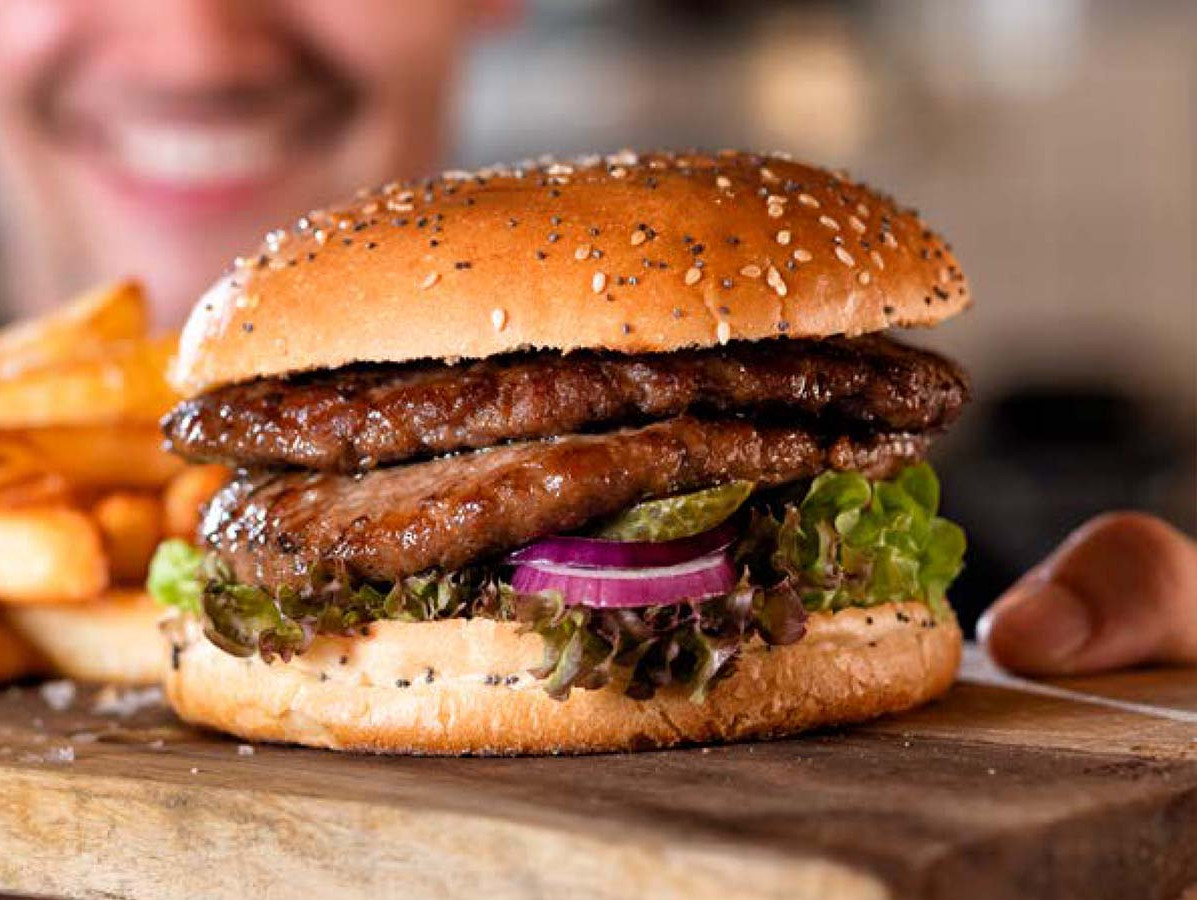
Enkco, a subsidiary of Van Loon Group, in collaboration with Olijck Foods, will supply products that are partly made of meat and partly of plant-based ingredients, with seaweed playing a major role. Arnold Burger, Commercial Director Foodservice at Enkco, discusses why he sees potential in a market for hybrid products.
The company is clearly confident in this new solution. Enkco is launching a whole range of products, including burgers, meatballs, ‘vinken’ (a Dutch meat product), chicken products, and carpaccio. Arnold says, "In addition, various products are in development for the future. We are not only working with seaweed but we are also using other plant-based raw materials."
"We are really making our new product for meat lovers and flexitarians, so essentially anyone who eats meat. For me, hybrid meat is simply a meat product. There are already many products on the market where meat is mixed with another product. Take a cordon bleu, for example. It contains breadcrumbs, ham, and cheese, but we still see it as meat."
"We are focusing on the foodservice sector – catering, healthcare, and educational institutions – and meal preparers. Innovations traditionally start in foodservice. If it’s successful there, retail often picks it up. Within foodservice, we are targeting consumers in the Netherlands, Belgium, and Germany."
"It’s true that hybrid is not new. We already launched a concept with the brand Halvom in 2019. We believe the market is now ready for it. Consumers are bombarded with climate discussions and, from the government, there are obligations for sustainability reporting through CSRD and Scope 3. New sustainability standards require large companies to critically examine the footprint of their products. Essentially, 25% less meat means a 25% reduction in CO2 emissions, freshwater use, and agricultural land use. For many people, the leap to 100% plant-based food is too big. With small steps, we can still make a significant impact."
"Sales figures show that consumers don’t find vegetarian alternatives tasty enough. Our new hybrid products fit well within CSRD standards and are also accepted by the market. In terms of taste, you hardly have to make any compromises. These hybrid products can compete with meat products in terms of taste, texture, and juiciness."

"In the products we developed with Olijck, we use a mix of seaweeds. What's unique about seaweed is that it helps retain the flavour of meat fats, keeping the products juicy. The mix of seaweeds provides a good natural binding, so the use of binding agents is limited. The combination of seaweed with beef and vegetables creates the ultimate taste experience, similar to that of 'regular' meat. You eat less meat without losing flavor, texture, or experience, and you also make big steps in reducing your CO2 emissions."
"Unfortunately, not at the moment. We only use local seaweed from the North Sea, which is currently more expensive than a meat component. Therefore, our products cost about 10% to 15% more. In the long term, hybrid meat may reach the price level of meat products, but this requires scale."
"Absolutely. It is very difficult to precisely replicate the specific taste and nutritional value of meat. There will always be a large group of true meat lovers. People’s habits don’t change that quickly."
This article was previously published on Foodbusiness.nl
Source: Vakblad Voedingsindustrie 2024